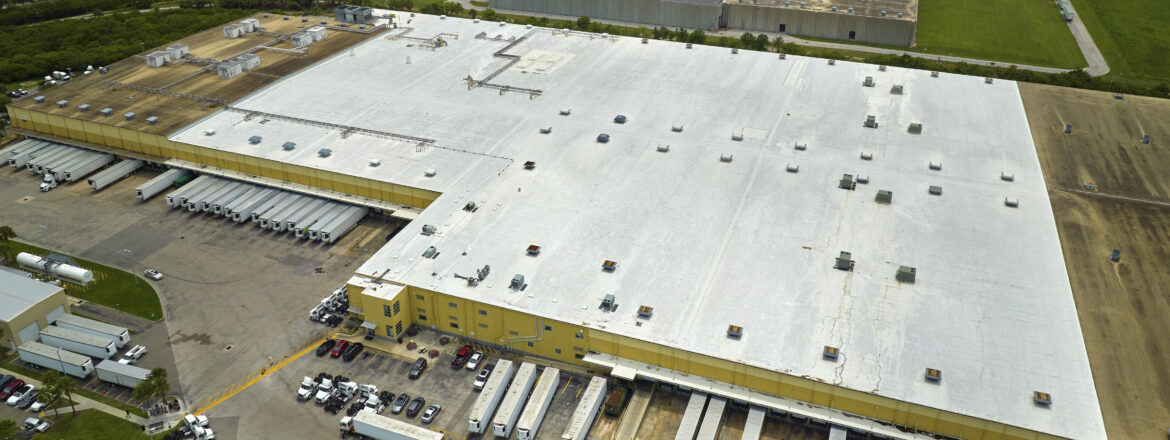How to choose between the different types of freight options
The best shipping method for your cargo will depend on a number of things, including the cargo being shipped, the origin and destination of the shipment, and the required transit time. Freight is frequently transported using a variety of techniques, or intermodally.
Types of Freight for Ground Transportation
Road and rail are both used in ground transportation. Some forms of ground transportation can deliver goods directly from the pickup location to the final destination, saving time and minimizing cargo handling.
Road Freight – FTL Shipping
Full truckload shipping, or FTL shipping, is the go-to mode of transportation for shippers who have tight deadlines for moving cargo. By specifying pickup and delivery times, shippers benefit from having more control over the shipment. FTL shipping reduces the number of stops the truck must make on the way and ensures that the freight will not be mixed with that of another shipper by giving the shipper exclusive use of the entire truck.
FTL is desirable for shippers that:
- • Have a large amount of freight to ship
- • Want more say in the timing of the pickup and delivery?
- • Would like the delivery to occur as soon as possible
- • Want their shipments to be separate from other shipments.
For shippers who have a full truckload of freight to move, are shipping perishable or fragile goods, or are shipping specialty items like oversized freight or dangerous goods needing expert handling, FTL shipping can be cost-effective.
Road Freight – LTL Shipping
LTL or Less Than Truckload shipping, is ground freight for smaller shippers that have as little as one pallet of freight move. LTL is advantageous for shippers that do not have to ship freight often or simply do not have large amounts to ship at one time. LTL shipping can be very cost-effective since the transportation company will not require a full truckload and, instead, the freight will be combined with other shippers.
Because the truck will probably stop at several locations along the way, picking up and delivering additional freight in the process, LTL shipping has the disadvantage that it might take longer for the freight to reach its destination. This indicates that the freight will be handled more and may even be moved from truck to truck, as opposed to traveling on a single truck the entire time, as in FTL shipping. ing and possibly be moved from truck to truck versus staying on one truck the entire time, as in FTL shipping. Dry goods and other items that do not need expedited delivery are perfect for LTL.
Rail Freight
Rail freight is an excellent choice for long-distance shipping because it frequently costs less than ground truck transportation. Large objects and loads of freight can be moved simultaneously. The rail shipping containers used are then either converted to truck ground transportation or ocean freight for international shipping.
If speed is not as important as the urgency of the delivery, rail may be the best option. Although scheduling for rail freight does not offer the same flexibility as that for truck freight, it does have a cost advantage. Rail is also a very safe and fuel-efficient mode of transportation.
Types of Freight for International Shipments
– Air Freight
Both domestic and international freight is transported by air. Speed is a desirable quality in air freight, especially for international shipments. Shippers choose either commercial or charter air carriers for cargo that is perishable, for luxury goods, health or pharmaceuticals, and for expedited courier shipments.
Online buyers, for instance, who order items from other countries typically receive them quickly via air freight before having them delivered by a local ground courier. High-end restaurants frequently place orders for fresh seafood, like tuna or lobster, to be caught, transported, and delivered the same day via air freight.
For cargo that needs to be delivered quickly, air freight is a safe and practical option, but it is also the most expensive. On the other hand, the benefit of faster transportation results in lower freight insurance premiums. As an added bonus freight shipment security is high, especially for international shipments, due to travel through highly-secured airports.
– Ocean Freight
Because it is inexpensive and can move large objects or lots of cargo at once, ocean freight is preferred for shipping goods internationally. Typically, cargo for ocean freight must be packaged in shipping containers that can easily be loaded and unloaded using cranes. Standard-sized shipping containers are produced and then converted for final delivery by truck and rail.
Ocean freight is advantageous for big or bulky items that can fit inside a container because freight costs are typically a flat rate per shipping container. Ocean freight does offer LCL, or Less Than Container Load shipping, which is charged by the size of the cargo. LCL cargo will be combined with other cargo increasing the handling of the freight and potential for damage or missing items.
Ocean freight is not desirable for perishable cargo that requires quick consumption. It is best used for dry goods such as manufactured items, fuel, raw materials and non-perishable goods such as foods that have a longer shelf life.
– Intermodal Freight
Without changing the container, intermodal logistics uses one or more of the aforementioned forms of freight. Intermodal shipping of containers between ocean, rail, and ground truck transportation routes is very common.
Air freight that typically transfers its cargo to ground transportation or final delivery also uses intermodal. The benefit of intermodal transportation is the ability to move cargo between two locations quickly and without handling it along the way.
Choosing Your Freight Carrier
CHP provides ground truck transportation for FTL and LTL shipments. We specialize in recurring deliveries as well as one-time shipments. We can pick up and deliver next-day within the New York City/New Jersey area and have access to trucks for regional and long-haul national deliveries.
Contact CHP today to request your free LTL or FTL shipping quote.


